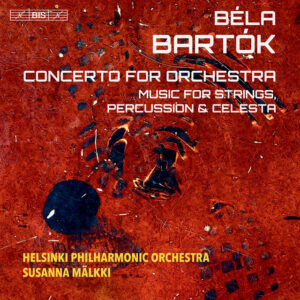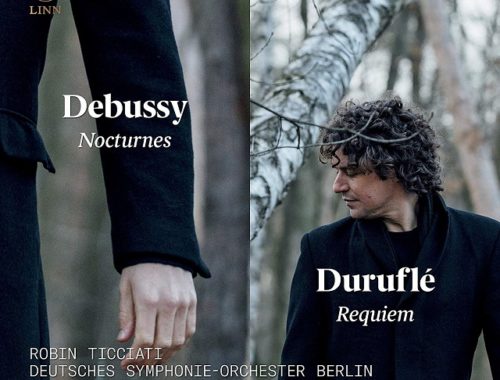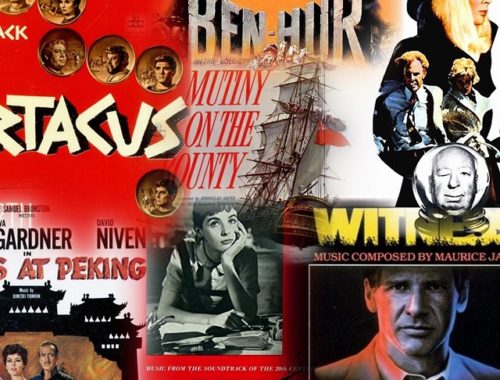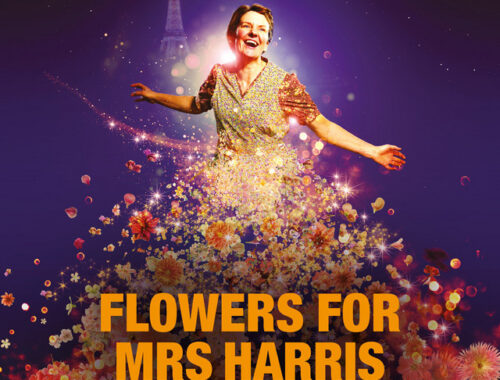GRAMOPHONE Review: Bartók Concerto for Orchestra/Music for Strings, Percussion & Celesta – Helsinki Philharmonic Orchestra/Mälkki
 Susanna Mälkki’s thrilling sojourn in Duke Bluebeard’s Castle was roundly welcomed by me in the June edition of Gramophone – and now on much more familiar ground she and the outstanding Helsinki Philharmonic Orchestra work more conspicuous magic on two staples of the repertoire.
Susanna Mälkki’s thrilling sojourn in Duke Bluebeard’s Castle was roundly welcomed by me in the June edition of Gramophone – and now on much more familiar ground she and the outstanding Helsinki Philharmonic Orchestra work more conspicuous magic on two staples of the repertoire.
Stanley Kubrick has a lot to answer for with regard to Music for Strings, Percussion and Celeste but not withstanding how it ratchets up tension in scene after scene of The Shining the supreme achievement of the piece as ‘pure music’ is the collusion (and friction) between the theoretical and the extra-musical. Has a symmetrically structured fugue ever carried more emotional baggage than that which opens and dominates the first movement? Mälkki and her orchestra marry a cool lucid beauty to unsettling intensity. They know all about icy wastes in Helsinki and in the highly charged nocturne that is the slow movement the underlying intensity is now very much in your face. I like that BIS keep things up close and personal.
That pays dividends in the scherzo and finale where a febrile energy and incisiveness is thrown into sharp relief by the immediacy of the sound. Not a rhythm fudged or smudged. And if the finale lacks that last ounce of inbred Hungarian fire such as you get with a Reiner or a Solti it is nonetheless virtuosic and exciting. I especially love Mälkki’s relish for the enriched return of opening fugue theme. Such a moment of inspiration from Bartók.
The Concerto for Orchestra is at the same level of accomplishment. Again Mälkki has a real nose for atmosphere and makes dramatic capital of Bartók’s precipitous emotional outbursts and what can only be described as the strange folksiness of what comes between them. The Elegia is Bluebeard’s ‘Lake of Tears’ all over again (has a solo piccolo ever sounded more desolate?) and the anguish of it is not lost on Mälkki.
The character of Helsinki’s Chaplinesque winds in the ‘Dance of the Couples’ and ‘Interrupted Intermezzo’ has the requisite charm and awkwardness – and as raspberries go the trombone’s ‘interruption’ could hardly be ruder.
It’s all very impressive both in terms of virtuosity and characterisation and the metamorphosis of the finale’s jaunty trumpet tune into something resoundingly triumphant and, yes, nationalistic is brought home with a breadth and fervour which is right up there with some of the best accounts on disc.
You May Also Like

GRAMOPHONE Review: Duruflé Requiem / Debussy Nocturnes – Kožená, Berlin Radio Choir, Deutsches Symphonie-Orchester Berlin/Ticciati
08/11/2019
GRAMOPHONE: From Where I Sit – September 2019
12/09/2019

